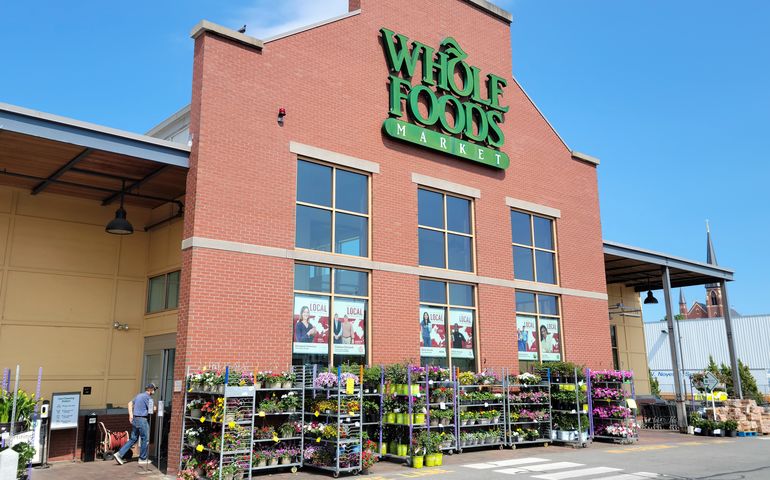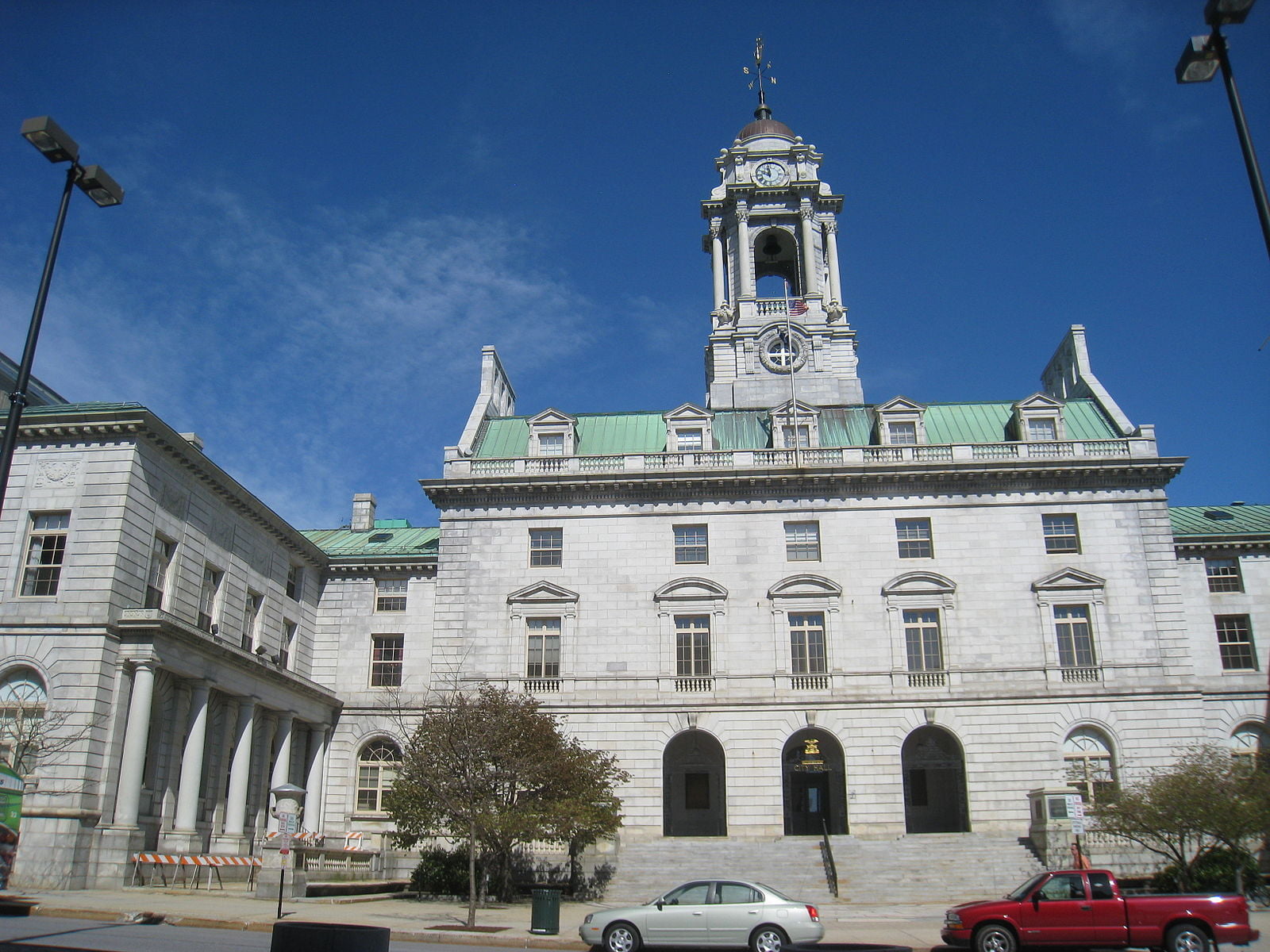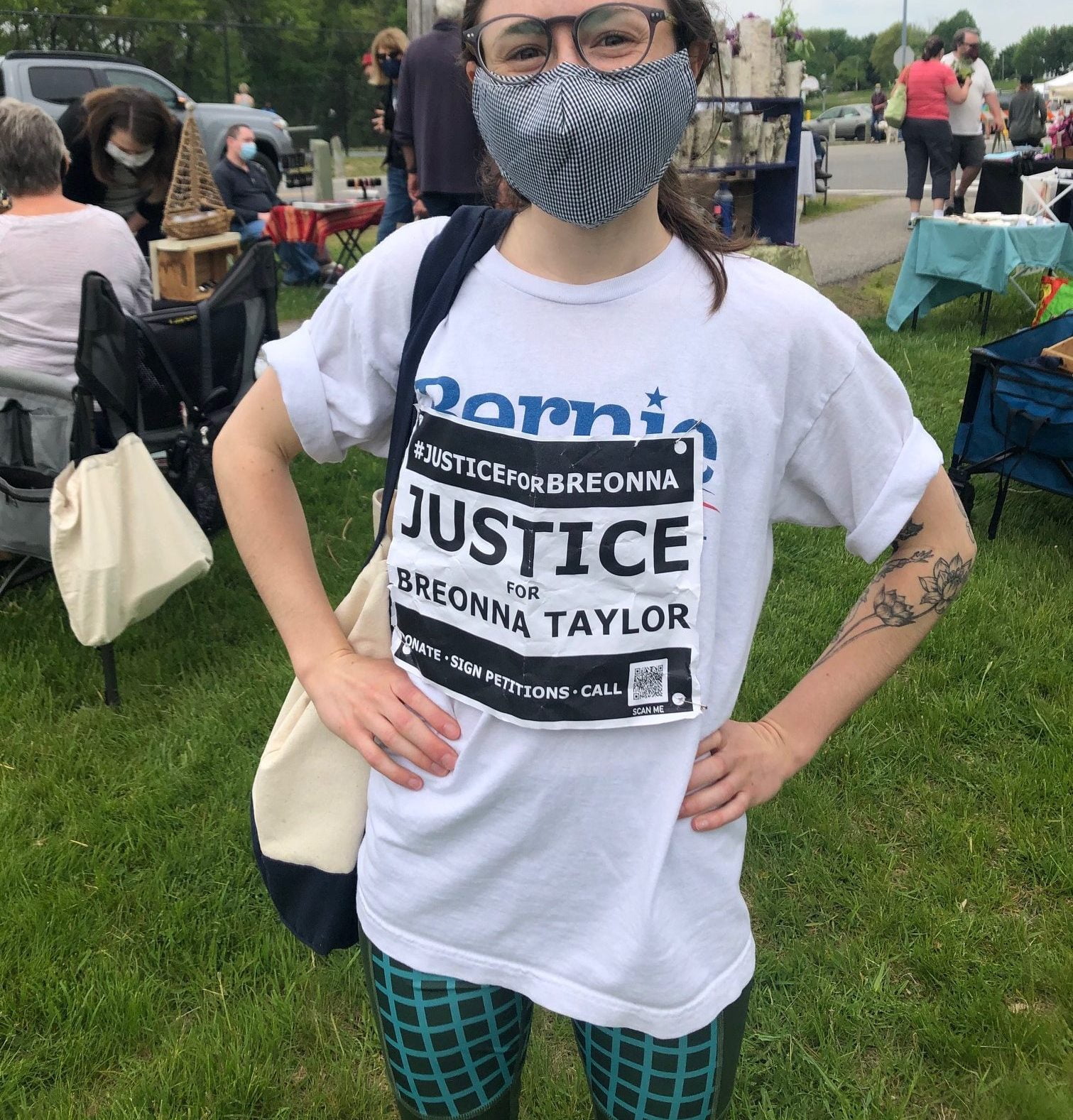On July 6, the Maine Supreme Court ruled that People First Portland’s measure to mandate hazard pay for workings during a declared emergency was constitutional. However, the Court sided with the City of Portland in ruling that the provision does not come into effect until January 1, 2022. City of Portland leaders such as Mayor Kate Snyder and City Manager Jon Jennings’s actions opened the door for some of the biggest corporations, including MaineHealth and Whole Foods (bought by Amazon in 2017 for $13.7 billion) to flaunt the voter-approved law, thereby denying thousands of frontline Portland workers hazard pay during the pandemic. Meanwhile, many other employers, such as Hannaford and the University of Southern Maine abided by the will of the voters. In the face of corporate intransigence, two Portland Whole Food workers filed suit. One of those workers, Caleb Horton, who is a member of Maine Democratic Socialists of America, spoke to Pine and Roses’s Todd Chretien about the experience.
Todd Chretien: Thanks for sharing your experience with us, Caleb. Whole Foods presents itself as an eco-friendly, socially responsible enterprise. What’s it like to work there?
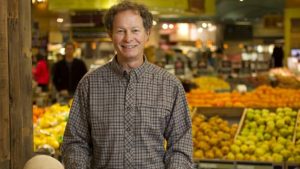
John Mackey, Whole Foods and “servant leader” Whole Foods. Photo credit MSNBC
Caleb Horton: Working for Whole Foods isn’t the greatest experience in the world. Add Amazon.com to COVID-19, and multiply that by being in a customer-facing business, and you’ll have some idea what workers have been experiencing over the course of the pandemic. Amazon piloted their e-commerce grocery delivery service and our workplaces were extremely crowded. We were not provided with sufficient or promised PPE and workers were faced by dual, contradictory impositions from management: First, to protect themselves from COVID by maintaining distance from others (“Safety is your responsibility!”) and, second, meeting Amazon-style performance metrics. This was an impossibility. On top of the “Amazonification” of Whole Foods during this time, which pushed workers to ignore their own unsafe working conditions, we had to deal with plenty of entitled anti-maskers. Often, we would receive multiple text messages a week telling us that employees had been diagnosed with COVID. Nobody had any faith in the management-led, hermetically-sealed contact tracing process. I’ve never met anyone who was actually told by management to quarantine.
This all became so bad that, by the time I got another job opportunity in April 2021, multiple departments were extremely understaffed—down to just three or four employees. At the same time, management’s metrics system expanded to new departments while budgets increased for e-commerce shoppers. What a mess.
TC: By last fall, it was obvious that many frontline workers were facing similar problems, which is exactly why Portland’s citizens overwhelmingly voted to mandate hazard pay during the state of emergency. It must have come as a kick in the teeth when Whole Foods refused to pay. Can you tell us why you decided to file suit?
CH: For all the reasons above. We need to be there for each other—the meaning of life is to build the power of the oppressed. I wanted to do something important because we all have a role to play. I wanted to show that the legal system is the capitalists’ legal system, and we’ll never win by playing by their rules of decorum and procedure. But having said that, I was naive enough to think that the courts wouldn’t completely flaunt the will of the voters by disregarding the involuntary sacrifices of Portland’s poorest during a pandemic. I also filed the suit as a “fuck you” to the the anti-worker city councilors.

Caleb Horton, former Whole Foods worker and DSA member
TC: How did Whole Foods react?
CH: They ignored it! In the lead up to the Effective Date (in December 2020), I surreptitiously asked store and regional management if they would be paying $18/hour, and they never responded. I’m sure they would’ve had to say something if we actually managed to sue them directly, but the Chamber of Commerce got the drop on us with their suit to the city, and we had to intervene.
TC: Why do you think you won in the Supreme Court?
CH: Well, I want to be clear that I don’t think we won. We ran a ballot campaign to get every worker risking their lives in this pandemic for under $18/hour a raise. But according to the government (both the Supreme Court and Portland), that is not the law right now.
We won that election, but the City Council said they wouldn’t enforce the law, and changed their minds about when they thought the effective date was. This was a totally transparent maneuver on their part. They believed the Effective Date was December 2020 when they were campaigning against it, and the moment they lost, they flipped to say the effective date was 2022 or whatever. Give me a fucking break! They’re a bunch of bad-faith liars and they should be kicked out of public life. But for now, at least, they got away with it.
So why did we lose? As Marx said, “Between equal rights, force decides.” The fact is that we did not have the power, the force, to realize our interpretation of the law. But by the same token, we weren’t so weak as to have the law totally invalidated. Maybe the workers in the next 100-year-pandemic will get hazard pay.
TC: Given that, what do you think you achieved?
CH: What did we achieve? Within my workplace, Whole Foods’ noncompliance, alongside the existing unsafe working conditions, dramatically raised militancy. This became a key entry point for organizing conversations. We did get thousands of workers a substantial hazard pay raise here in Portland because of the referendum while we were waiting for the Maine Supreme Court’s verdict. Some workers outside of Portland had a spillover effect on their wages, like Rosemont Market’s employees. Some companies are stopping hazard pay now, like OTTO pizza. Others are keeping it going. That’s no small feat.
We learned exactly how strong we are compared to the Chamber of Commerce and the City in a contest before the Supreme Court. We learned that we’re not strong enough yet. We need to develop strategies to increase our power vis-a-vis the courts, or our future electoral campaigns are going to be in trouble.
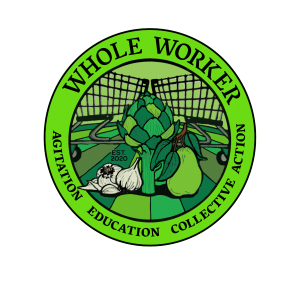
If you work at Whole Foods and want a union, contact Whole Worker
